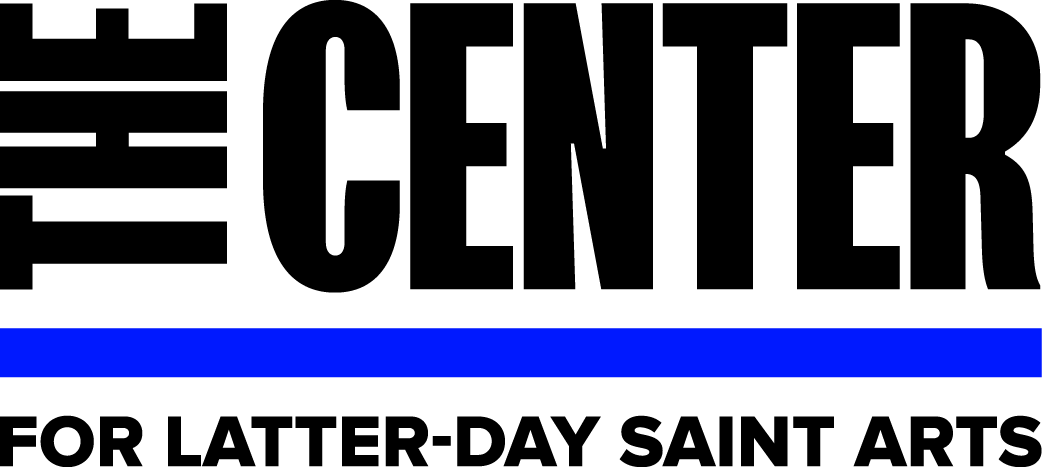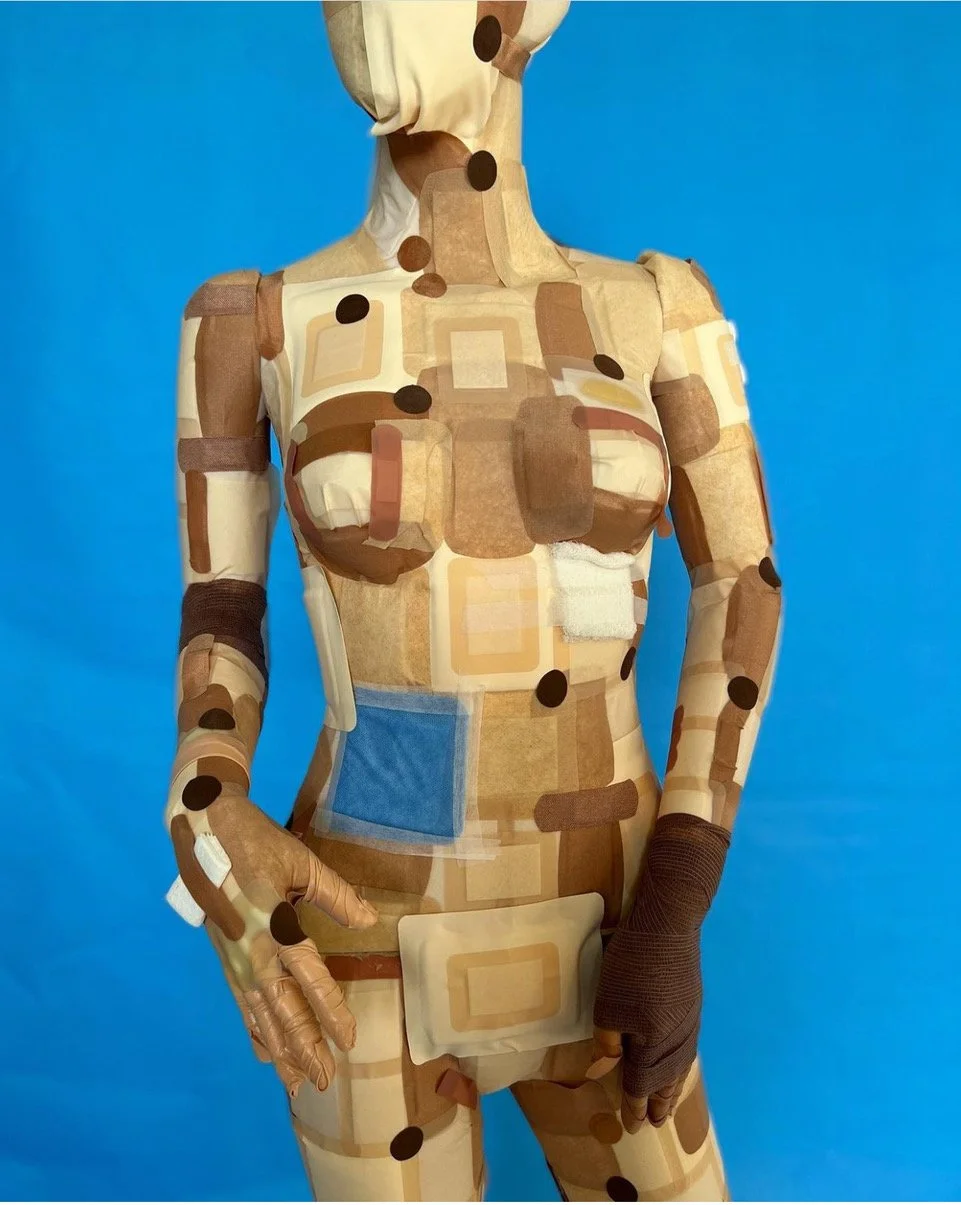May 13-19: Mosiah 11-17
A Light…That Can Never Be Darkened
Madyson Ysagaga (born California, she/her)
The Spirit is Willing But the Flesh Is Weak, 2021
Mixed media (female mannequin form, adhesives, bandages, medical tapes, wound
wraps, epoxy)
Courtesy of the artist, @dear_donor
This week’s Come, Follow Me chapters take us into the halls of King Noah’s court where Abinadi stands alone, falsely accused, scourged, exiled, and mocked at the hands of those with political power. Still, he is fiercely determined to share a message from God. Despite the aloneness, and even acknowledging his certain and looming death, Abinadi boldly proclaims his testimony of Jesus Christ through the words of Isaiah 53.
Often referred to as “The Song of the Suffering Servant,” Isaiah 53 is Messianic scripture from the beloved Old Testament prophet, words that may have felt especially sacred and heavy to Abinadi in the moments preceding his own martyrdom. Abinadi begins by asking the court, “Who will believe this report?” He goes on to remind them that the Savior of the world was “despised and rejected of men; a man of sorrows, and acquainted with grief.”
The nature of Jesus Christ’s life and death enables us to fundamentally understand our own mortal “reports.” Despite the physical, emotional, spiritual, and intellectual challenges that plague each individual, each is understood by a God who “descended below all things.”
This week’s Art Companion is a resonant and telling visual mixed media work from Madyson Ysagaga chronicling her experiences with chronic illness. It is her report; a sharing of agony, isolation, and experience.
Of this piece, the artist says: “A selflessly selfish decision. That’s what chronic illness is. It’s the relentless demand of prioritizing the limitations of the body above all else. It’s a choice no one with chronic illness wants to make, but it nevertheless must be made and should be honored. Honoring those limitations are choices I have to make everyday. I choose myself in ways that I wish I didn’t have to. These are decisions I have to make to remain alive.”
She continues: “Eve, the mother of all living, had to make a selflessly selfish decision in the Garden of Eden so that man could be. She honored the great predicament by choosing to partake. Everyday I honor her choice by choosing to honor mine. This piece is a meditation of those decisions; selflessly selfish decisions that have to be made so that man might be: embodied in the form of various adhesives and bandages applied onto the form of a female mannequin over and over again. That repetition reflects my daily decisions to repeatedly choose chronic illness. It is only through repetition that what feels like nothing becomes something. What that something is or how that something feels is not fixed. It is simultaneously engraved and ephemeral: mirroring the juxtaposition that comes from having both a body and a spirit.”
This work is exhibition at the Mesa Arts Museum with the Center for Latter-day Saint Arts’ exhibition, Materializing Mormonism: Trajectories of Contemporary, Latter-day Saint Art. The exhibition is open and free to the public from May 10-August 4, 2024.
Discussion Questions:
1. When the wicked priests of King Noah tried to trip-up Abinadi in their questions, he "answered them boldly" (Mosiah 12:19). What helps you to answer boldly when your beliefs or behaviors are challenged?
2. Abinadi refers to "appl[ying] your hearts to understanding" (Mosiah 12:27). How can this relate to the way we talk to one another or listen to each other in Sacrament meeting talks or testimony meetings?
3. In describing Jesus, Abinadi explains (quoting Isaiah) that from physical appearance, He was a man with "no form nor comeliness; and when we shall see him there is no beauty that we should desire him" and "we esteemed him not" (Mosiah 14:2-3). What does this description of Jesus teach us about how we should assess others from their appearance?
Questions For Children and Youth:
1. Abinadi says to the wicked priests of King Noah that they would have been wise if they "applied [their] hearts to understanding" in reading the scriptures (Mosiah 12:27). What do you think it means to apply your heart to understanding when your read the scriptures?
2. "Oh how beautiful upon the mountains are the feet of those who publish peace" (Mosiah 15:15-17). What can you do to publish peace in your family and with others?
3. Art project: Abinadi quotes Isaiah in describing the Savior who has "borne our griefs, and carried our sorrows" (Mosiah 14: 4). Make a container of some sort—it could be, for example, a sewn pouch of fabric, a clay pot, a paper envelope, or a pocket cut from an old pair of jeans. On strips of paper, write down your griefs and sorrows that you can put into the container for the Savior to carry for you. Put the paper strips into the container.


